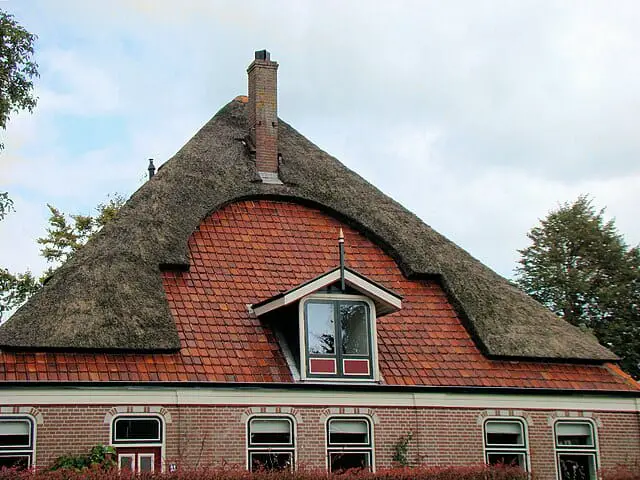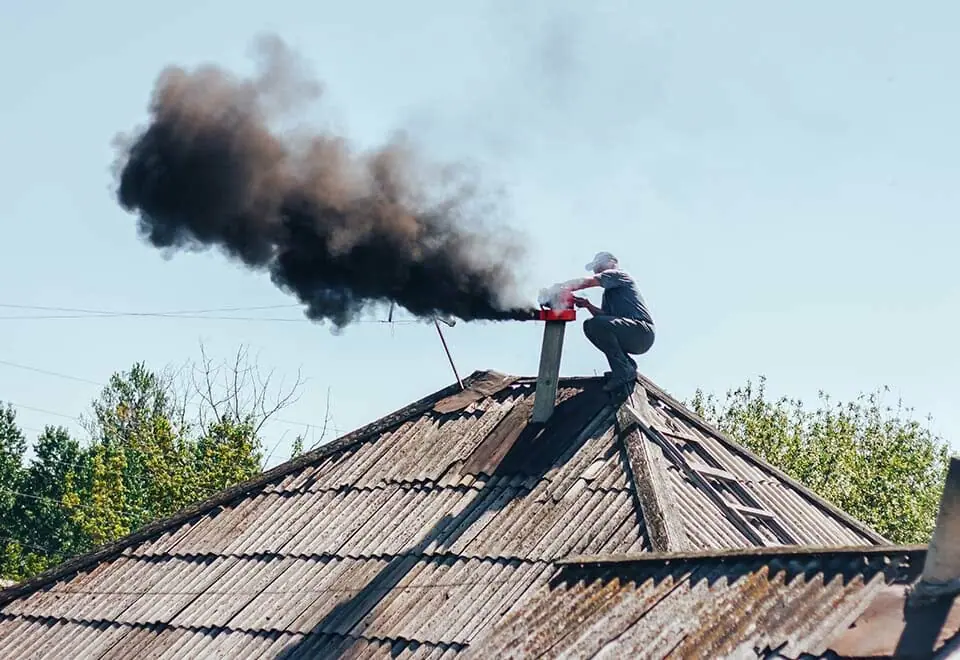- Choosing a waterproofing product is important, as is understanding the porosity of the material being waterproofed
- Different types of bricks vary in porosity, so it’s possible that a chimney will need to be waterproofed more than once
- If the brick faces are popping off, it’s too late to waterproof the chimney and it should be rebuilt instead
- Waterproofing a chimney breast is necessary to protect it from the elements
- There are two types of waterproofing – water-based and solvent-based – with the latter being more expensive but better at penetrating the substrate
- The crown of a chimney should be treated with a specific waterproofing material, as it is more porous and susceptible to leaks than other parts of the chimney
When I bought my summer home in New England, I knew I had to waterproof the chimney.
But I had no idea how to do it! I read all of the instructions online, but they were all very confusing. Finally, I decided to call a professional.
The professional came to my house and looked at the chimney. He said that it needed to be waterproofed using a special material called polysiloxane. He then showed me how to apply it using a brush.
After he left, I got to work applying the waterproofing material. It was a lot of work, but I managed to get it done.
And the best part was that it worked! The chimney was now waterproofed and ready for winter.
One of the biggest challenges of owning a summer home in New England is dealing with the weather.
But thanks to my newly waterproofed chimney, I was prepared for whatever Mother Nature threw my way.
Contents
Waterproof Your Chimney and Prevent Chimney Leaks
You may not have thought much about your chimney, but it’s one of the most important parts of your home.
It’s also one that can be quite a vulnerable location for water damage, especially as it is made from very porous materials like brick or mortar, which can easily absorb moisture from precipitation.
When it comes to water damage and chimney leaks, the highest risk is most often the result of small (or sometimes not-so-small) amounts of water that have collected inside your chimney before it reaches a combustion source such as a fire.
Here are some tips on how to waterproof your chimney and prevent chimney leaks.
i. Inspect and clean your chimney regularly
One of the major ways in which you can protect your chimney from water damage is by making sure that it is clean and in good working order.
First, see if the cap is present. If there’s no cap, this means that water can seep through and cause cracks in the mortar joints. Check mortar joints for leaks or fissures. Do this by using a small flashlight to look for any leaks inside your chimney.
Make sure that all of the fireplaces in your home are kept clean and free of ashes, soot, and other buildups. If you are using any kind of wood-burning appliances, make sure that you regularly clean the wood stove‘s glass doors and interior.
If there is any build-up, clean it immediately.
ii. Waterproof your chimney with chimney bags

Chimney bags are one of the most effective ways to waterproof your chimney and prevent water-related damage. A chimney bag is a large plastic bag that is placed around the chimney.
It is attached using a rope, so that it can be pulled in and out of the flue when necessary. Fireplace professionals recommend getting a chimney bag that’s at least 50 feet long, so you have enough space to easily cover your chimney flue. You can find one of these at most hardware stores.
iii. Have it well constructed
When constructing a new chimney, make sure that it is well-constructed by a professional. It should have the correct amount of insulation and be built to the correct dimensions.
If you are looking to replace your old chimney, then make sure that you choose a model that’s well insulated and has a good flue lining.
The flue lining is made up of materials like ceramic or clay. Don’t forget to verify its thickness as this can affect its efficiency. This will help protect you from future leaks and water damage.
iv. Use it for the right purpose
Whether you are using a wood-burning appliance or a gas-fired appliance, know the right way to use it. Either of these appliances can run out of heat, especially when they are being used for prolonged periods.
It’s best to limit its use to one hour per day maximum and make sure to shut down the appliance completely after use.
vi. Maintain your chimney regularly

Maintaining your chimney regularly is the best way to waterproof your chimney and prevent water damage. You can do this by getting a professional to come over at least twice a year, or hire a professional chimney sweep who can do the job for you.
Make sure you contact a reputable company when looking for someone to carry out these services. When hiring a professional, make sure that they have the right experience and qualifications, so they know how to work well with chimneys.
They’ll also be able to correctly assess the state of your chimney’s inner structure and build, in order to create or correct any necessary changes.
Taking steps to prevent water damage and leaks in your chimney is a very important part of making sure that your home is protected from serious water damage. While a chimney can be a very useful feature to help you maintain a fire, it’s best to know how and when to use it properly.
